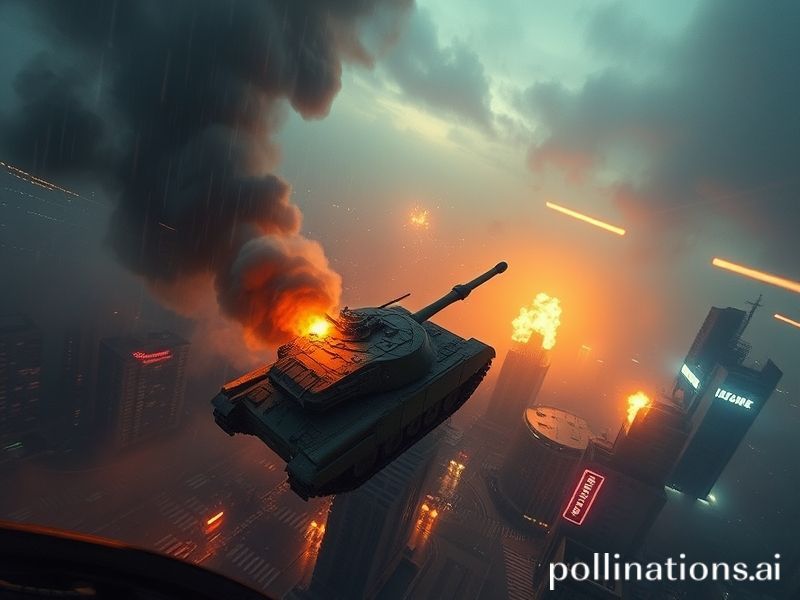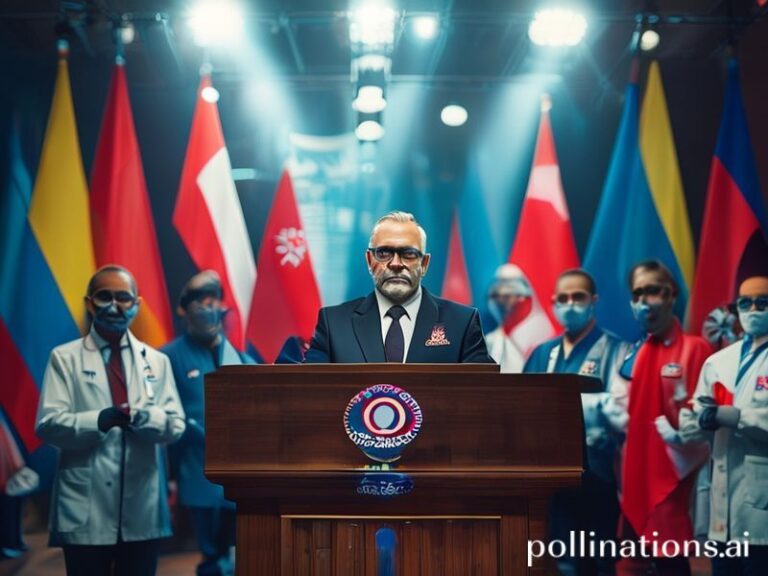Battlefield 6: How a Videogame Became the World’s Most Chaotic United Nations
Battlefield 6: The World’s Most Expensive Geopolitical Mood Ring
By Dave’s Locker International Desk
It’s 3:14 a.m. in Reykjavík when the servers finally breathe, and somewhere in Lagos a teenager wearing noise-canceling headphones learns the Swedish word for “cover me.” That’s the moment you realize Battlefield 6 isn’t really a videogame—it’s the planet’s least supervised United Nations, where every national stereotype gets a rifle and a broadband connection, then votes on who to frag first.
Electronic Arts, headquartered in Redwood City but spiritually domiciled in every tax shelter from Dublin to Singapore, has once again synchronized humanity’s circadian rhythms with a patch schedule. This time the pitch is simple: 128 players, seven continents, one “near-future” conflict that suspiciously resembles last Tuesday’s cable-news chyron. The marketing copy promises “dynamic global events” and “persistent war economies,” which is consultant-speak for “We read the headlines, then monetized them.”
Consider the map roster. “Doha Downshift” drops you into a sandstorm-choked financial district that looks like an architect’s rendering of regret. “Suez Drift” lets tank commanders recreate the Ever Given fiasco, only now the stuck ship is on fire and insured by microtransactions. In the background, Korean pop and Nigerian Afrobeats leak from different squads’ voice chats, creating the sort of accidental world-music festival that UNESCO could never afford. The UN itself is busy elsewhere, presumably drafting a strongly worded letter about spawn-camping.
The real genius is the live-service “Battle Pass Diplomacy.” Every season the factions rotate allegiance—today the EU peacekeepers, tomorrow the Pan-Asian Coalition, next week a plucky band of Australian influencers. Players dutifully grind for digital berets while the International Criminal Court updates its browser tabs. Stockholm Syndrome has never been so literal: DICE is Swedish, and we are all, somehow, grateful.
Meanwhile, the global semiconductor famine means your console’s GPU was probably smuggled out of Shenzhen in a diplomat’s handbag. Each lag spike is a gentle reminder that supply chains are the new supply lines. When the server crashes in São Paulo, a teenager in Warsaw loses his last med-pack and swears in Portuguese he learned from memes. Somewhere, a Foxconn worker clocks overtime so that a Norwegian dentist can unlock a pink assault rifle skin named “Socialized Medicine.” The circle of life, sponsored by energy-drink oligarchs.
Diplomats have noticed. At last month’s G-20 sidebar in Rome, defense ministers compared kill-death ratios like vintage-wine notes. The French delegation bragged about bagging the first nuclear submarine skin; the Chinese delegation countered with a rare golden drone strike animation. Everyone agreed that actual war is messy, whereas this is merely profitable. A White House staffer was overheard asking if the game could simulate a cyberattack on the Colonial Pipeline “for training purposes.” EA politely declined, citing ESRB guidelines and potential DLC revenue.
And yet, amid the snark, Battlefield 6 accidentally does what Davos never quite manages: it flattens hierarchy. A conscript in Kyiv can out-rank a prince in Dubai if his aim is truer. The in-game currency is meritocratic, if you ignore the fact that the richest clans buy their kids ergonomic thrones. Still, for ten minutes at a time, nationality dissolves into the universal language of “revive me, you absolute cabbage.” It’s the closest we get to world peace, and it costs only $69.99 plus seasonal battle passes.
When the sun rises over the Pacific and the servers reboot for “scheduled maintenance” (read: panic patching whatever the Russians just hacked), players log off and return to embassies, refugee camps, stock exchanges, and basement LAN cafés. They carry with them the same lesson every empire eventually learns: borders are just latency in disguise.
EA’s share price ticks up another two percent. Somewhere, a marketing intern updates the tagline: “War never changes—unless there’s a quarterly earnings call.” And somewhere else, a player in Jakarta reloads, convinced the next round will be fairer.
Spoiler: it won’t. But at least the loading screen gives us all something to watch while the actual planet buffers.







